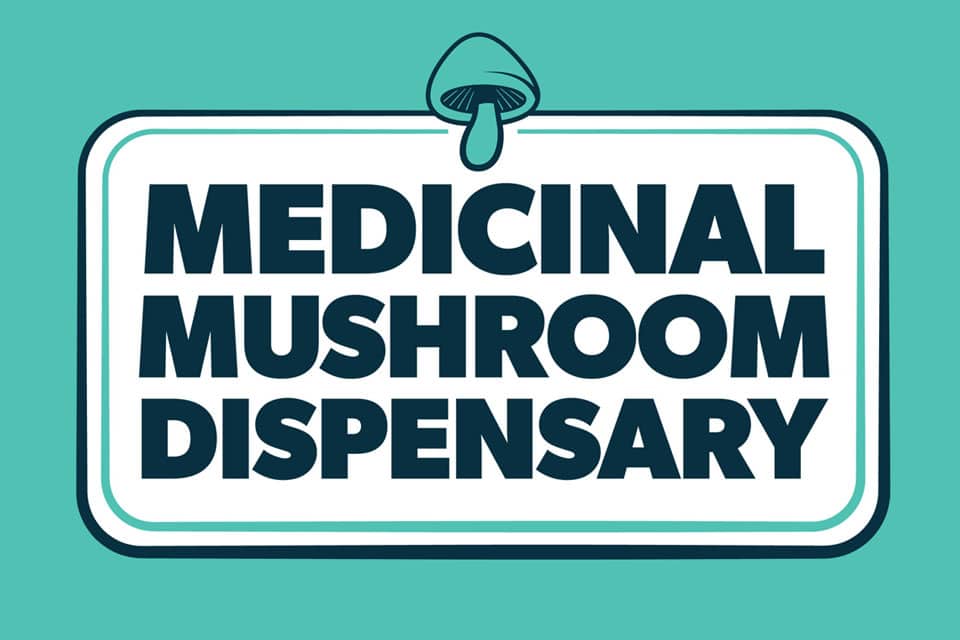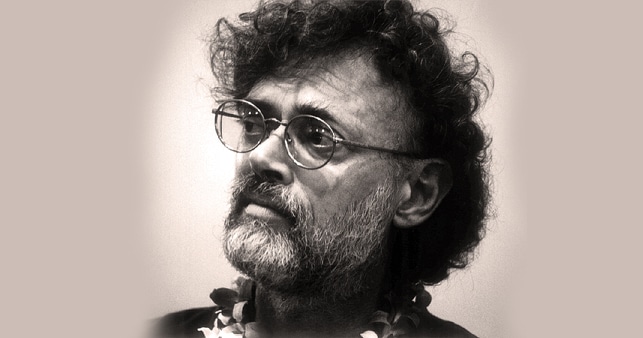
The following article on Canada’s new online mushroom dispensary is a guest post by Carly Berinstein.
You’d be hard pressed these days to find a pop psychology or wellness magazine without a feature on psychedelics. It’s a sign of the times: writers and “life hackers” are no longer excommunicated for discussing the substances once solely associated with social disruption, free love, and Timothy Leary. By contrast, psychedelic use is so widely discussed as a therapeutic treatment and cognitive enhancement that mainstream publications like Psychology Today seem they can’t get enough. Now, most everyone (including my own parents, despite their exposure to the fear-mongering outcry in the 1970s) seems to know something about how and why psychedelics are being used therapeutically.
On many fronts, this is a huge win for those who have been fighting the dominant Western paradigm for decades, even centuries, for recognition of the power and entheogenic capacity of these substances. However, we mustn’t forget the faction of these advocates who are concerned about mainstream representation due to the potential for disrespect, indiscriminate use and over-commodification of these substances. Psychedelics, after all, are often seen as fundamental symbols of the resourcefulness of self, nature, and community, the opposite of commercialism. It is here that the irony of “progress” is seen, as this positive press for psychedelics has paved the way for the success of public access in the form of the Medicinal Mushroom Dispensary (MMD), operating online out of Canada.
Go to their website and you’ll find descriptions of medical benefits and protocols. You can currently order microdoses only, and it requires some proof of a diagnosis and recommendation for treatment. The most important question for me is: is this the best model for access? I greatly appreciate the intent of the MMD, which seems to be giving powerful medicine to those who need it, and providing some education and communication with the customer (“member”) about effective dosage. However, the MMD is not a medical supervisor, and cannot enforce their Code of Conduct. Asking members to follow protocols, to not share or sell their supply, and to be aware of any impairment before operating machinery is wonderful, but without proper supervision, these are still risks.
My interpretation is that those at the Medicinal Mushroom Dispensary are a group of brave souls who believe in the healing power of psilocybin so much that they are willing to risk criminal penalties for its distribution to those who potentially have a need. Due to how much popular press the MMD and its founder has gotten, it would seem that the Canadian government has little interest in enforcing the law on this. To me, this increases the risk that others will take the legal barriers even more lightly and attempt to sell psilocybin on a for-profit scale.
I have several questions about the impact of the MMD. Will open online access derail the journey to legalization, leading to a crackdown on unsupervised use? For those who can’t afford it, will online popularity drive up demand and again create an income divide for the best available treatment (even though psilocybin mushrooms are available freely in nature, for those with mycological identification skills)? Does this encourage or discourage a deeper relationship to the medicine by those who are curious? Are readers of one or two popular articles feeling empowered to purchase and try their own? How can customers ensure quality assurance in order to know that they are getting safe and consistent doses?
In general, is this true progress in the direction of our society’s functional relationship to the beneficial use respect of powerful medicines like psilocybin-containing mushrooms?

Psilocybe semilanceata
There are several active models for how to legally and safely increase access to psychedelics. MAPS, the organization that has been working tirelessly for legalization and greater access to psychedelics for over 30 years, has funded FDA-approved research studies on safety and effectiveness. These studies have successfully accelerated the passage of psychedelics through the legal pipeline which all substances must travel before release on the market. Psilocybin was granted breakthrough status last year (legal to study, not to buy, sell, use, or prescribe), thanks largely to MAPS’ efforts.
There are other groups taking initiative to legalize, not through the existing FDA approval pipeline, but in a way that promises greater autonomy for users of all types, like the PSI 2020 ballot initiative of Oregon. The Psilocybin Service Initiative would legalize supervised use of psilocybin for any adult over age 21 who passes a medical safety screening (psi-2020.org). Another example is Paul Stamets, who advocates for the use of psilocybin microdoses as a nootropic, though he currently only sells non-psychedelic mushroom products under his brand, Host Defense.
Still others are minimizing barriers to access through specific or general decriminalization initiatives, like Denver’s vote to decriminalize psilocybin and Oakland’s Decriminalize Nature campaign (both cities voted yes to decriminalization in the spring of 2019). To decriminalize means to reduce penalties and enforcement for crimes related to the substance, but does not create opportunities for legal access.
None of these initiatives have done what the MMD does, which I would compare to the path cannabis took in the US: from completely illegal (though federally Schedule I to this day, which is the category reserved for high addiction potential and no medical value) to now available for retail sale, sometimes with the requirement of a diagnosis. Comparable to recreational use of substances like tobacco or alcohol, in some areas cannabis is now taxable, age restricted, and commonly available.
While increased mainstream acceptance and expansion of access is exciting, I believe we should absolutely take pause and ask these important questions about commodification and tiers of public access to psychedelics—not just because of what they symbolize, but because of the crucial historical turning point in which we find ourselves. Talking about psychedelics, for better and for worse, is extremely popular again.
Do we want to see mushrooms follow the steps of cannabis or tobacco—marketed, taxed, and with barely any comprehensive education available? Socially normalized to use recreationally, even daily, without much thought? Or do we want to blaze a new trail, one of access not based on income or hometown but rather on educated personal choice? I believe that more long-term efforts like those of MAPS to increase research, and of PSI 2020 to equalize access, have the opportunity to set this higher standard.
I applaud the grit of the Medicinal Mushroom Dispensary, but hold them in great hesitation at this exciting moment in history, remembering all those who have fought for legal and free use of what the earth creates at no cost. I would hate to see this online mushroom dispensary cause mushrooms, symbols of unity consciousness and spiritual awakening, to follow the same path of expensive and shallow depravity that now characterizes much of cannabis use in the USA.
How can we retain the benefits of popular press while aiding legalization efforts and allowing those from all income levels to participate? How can we encourage a safe and informed use of psilocybin?
This conversation is a huge one, and the stakes are extremely high. Every psychedelic research meeting and conference that I have attended echoes this warning: we have come too far to let the government’s fear response get triggered, shutting down all investigation into the benefits of responsible use. We have to be very particular about how we represent our advocacy work and which avenues of access we support.
This is why, despite the bravery of those who are generating excitement by increasing access to psilocybin, we must ask: is it wise in a world of so much misinformation and desperation to simply sell it online like this? Is MMD part of the problem by keeping its access in the elite, educated hands of certain users, those who are privileged enough to afford it and to not fear jail because of it? These circles sometimes harbor a blindness to the need for social change, feeling no need to equalize the playing field since it already suits them. How and what efforts are the MMD making for social change, to ensure equal access to all who need the medicine?
To those engaging with this topic, I would like to share some suggestions on what we can do to support a world with safe, legal access to these substances.
The first thing we can all do is to educate the skeptics (and ourselves!) with the current scientific evidence, keeping in mind that what convinced your doctor may not work for your uncle, and vice versa. There are many points of access: searching PubMed for “psilocybin” yields direct scientific research studies, with abstracts that are usually easy to understand. Finding more personal stories and carefully framed data, found in Michael Pollan’s book How To Change Your Mind, is a much better approach for some.
I would discourage anyone from making statements that rush or push ahead of the scientific evidence. Making any broad statements, like how everyone with depression could benefit from the use of psychedelics, is misleading and polarizing. It’s not true in the research, and even if it were, the research has not investigated every single human with depression. When we spread an enthusiastic generalization without proper research to back it up, we normalize a sensationalized, feelings-based relationship to the news and the question of legality, which sparks a feelings-based backlash from those with enthusiasm in the other direction.
Next, political and lobbying work to change the conversation about controlled substances is also crucial. One way to do this is to work on legalizing better harm reduction, like comprehensive education and drug testing. If you are affiliated with an organization or institution, expanding access to drug harm reduction is of great benefit to any community. Also important is an investigation into the social impact of keeping psychedelics illegal: both the effects of criminalizing them, as well as the human cost of mental illness which could be diminished by expanding legal access to treatment.
Most importantly, if you belong to the privileged group of individuals who can talk about and engage in psychedelic use with little fear of criminal penalty, keep using your privilege and platform to expand the conversation. Listen and collaborate with those who don’t immediately agree with you on these issues, but don’t preach. Access to psychedelics for a few of us is not going to have as much of a social impact as the equalizing power of legal, safe access for the collective. May we see our liberation as connected and interdependent as a mycelium.











How do i get it. Maybe the only hope for a couple of people i know!
Weird article that didn’t even bother to contact me at the Mushroom Dispensary to get a comment. The author doesn’t seem to be aware that people are buying, selling and using mushrooms every day. I put my name and reputation on the line with this project, unlike every other mushroom dealer out there.